Background + history
The science communication laundromat is a series of exercises that builds into a workshop, designed to help scientists and researchers develop quality public engagement with science.
This website is aimed primarily at people who would like to use the tools to facilitate their own laundromat for scientist-communicators.
It was generated throughPhD research by Jo Bailey at the Centre for Science in Society at Te Herenga Waka | Victoria University of Wellington in Aotearoa New Zealand, supervised by Associate Professor Rhian Salmon and Professor Rebecca Priestley. Find out more about who’s involved
The PhD research and the subsequent development of the laundromat toolkit have been funded and supported by Te Pūnaha Matatini, a Centre of Research Excellence for complex systems.
what is a scicomm laundromat?
In short, it is a facilitated workshop model incorporating a series of exercises to help scientists or researchers to think about their science communication or public engagement in a reflexive way, in order to improve it. Improve it in the sense of being more purposeful, inclusive, more clearly designed for the people the communication is aimed at, with a better sense of potential challenges and motivations. Key to this is making the theory ‘practiceable’.
Here's a short explanatory video:
Can I use the laundromat in my own work?
Yes, you can. It is licensed under a Creative Commons Attribution-NonCommercial-ShareAlike 4.0 International License. That means you can copy and redistribute the material in any medium or format, and adapt — remix, transform, and build upon the material as long as you give appropriate credit, provide a link to the license, and indicate if changes were made, and as long as it is for non-commercial uses.
How did it come about?
The scicomm laundromat emerged out of two different projects that were ‘spun together’:
The first stream
Firstly, a laundromat installation to help conference attendees cathartically ‘air the dirty laundry’ of their discipline. This started with the New Zealand Association of Scientists (NZAS) conference in 2019, and was subsequently deployed at the Australian Association for the History, Philosophy and Social Studies of Science (AAHPSS), and for the Science Communicators Association NZ (SCANZ), plus with a group of designers in a gallery.
It took the form of a lo-fi, cardboard laundromat spaces that invited contributions based on prompts (drawing on ‘cultural probes’ used in speculative design practice) that participants could fill in and ‘peg out’ to share and air, or pop into a washing machine anonymously for someone else to launder.
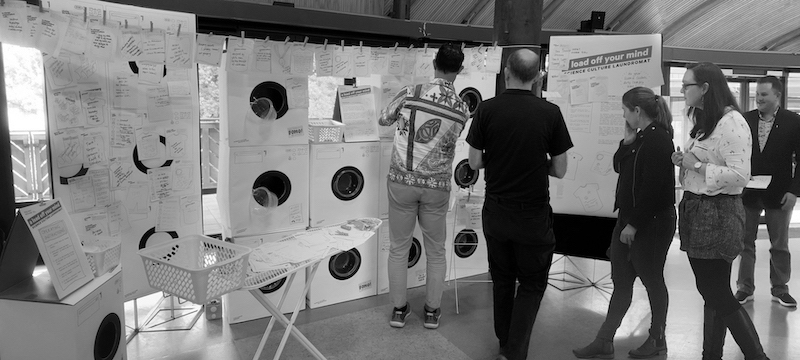
The first 'a load off your mind' laundromat installation at NZAS in 2019 in Tāmaki Makaurau | Auckland
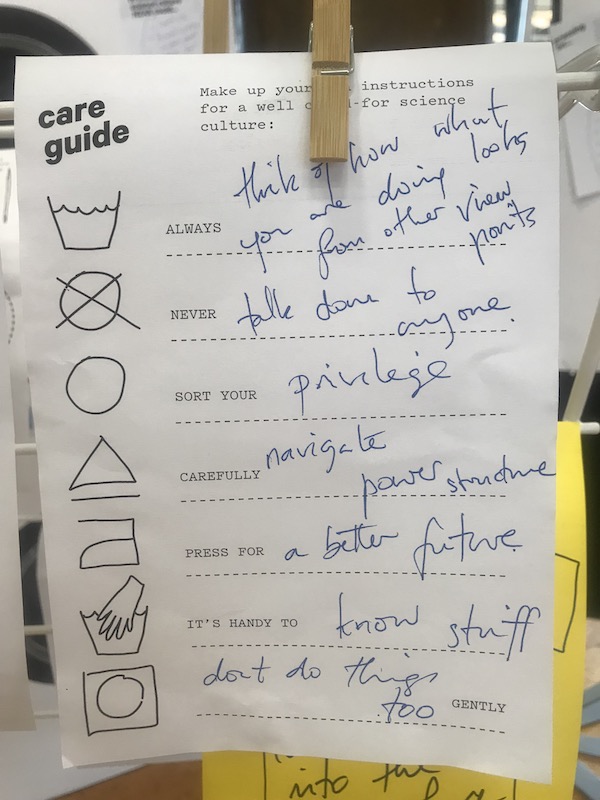
An example prompt hanging up at a laundromat
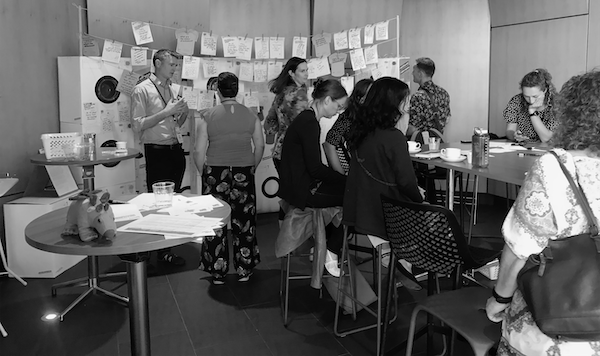
The SCANZ laundromat in Ōtautahi | Christchurch
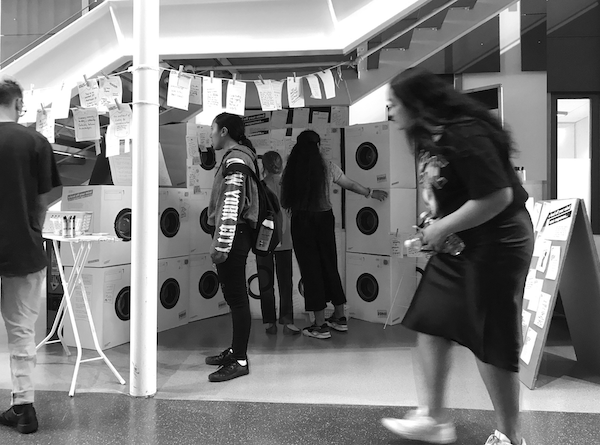
The AAHPSSS laundromat at Victoria University of Wellington, Te Whanganui-a-Tara | Wellington
The second stream
Secondly, we had been refining reflexive workshops for science research projects aimed at developing thinking around engagement, including tools like ‘the wheel’ first proposed By Rhian Salmon and Heidi Roop (2019).
Spinning together
These two streams of work came together in 2020 in a project for Te Pūnaha Matatini called the ′Engagement Incubator’ (EI) where we ‘incubated’ a group of scientist-led engagement projects with their research teams over three days (which we wrote about in JCOMM), where we used the laundromat format and all its associated puns as the canvas for a multi-day workshop.
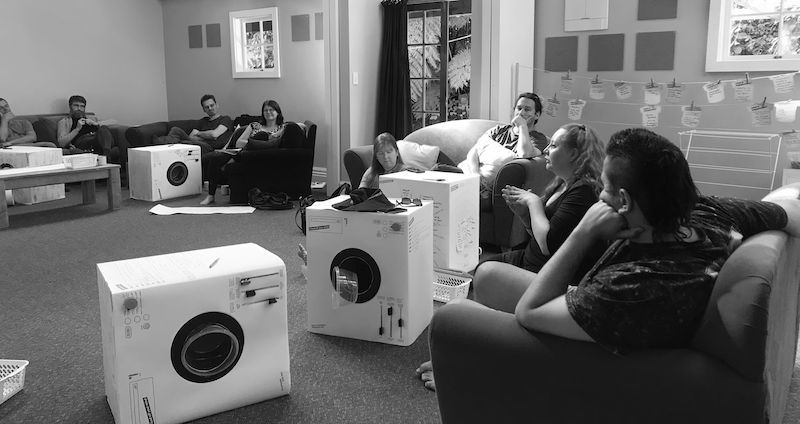
A group discussing their projects in the first residential EI laundromat
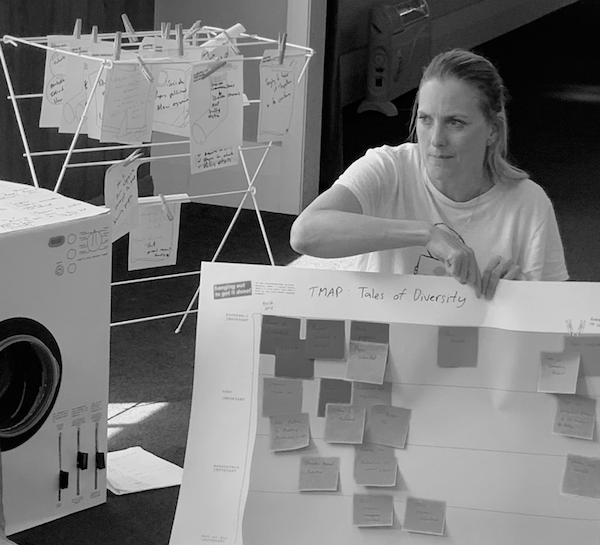
Presenting a timeline
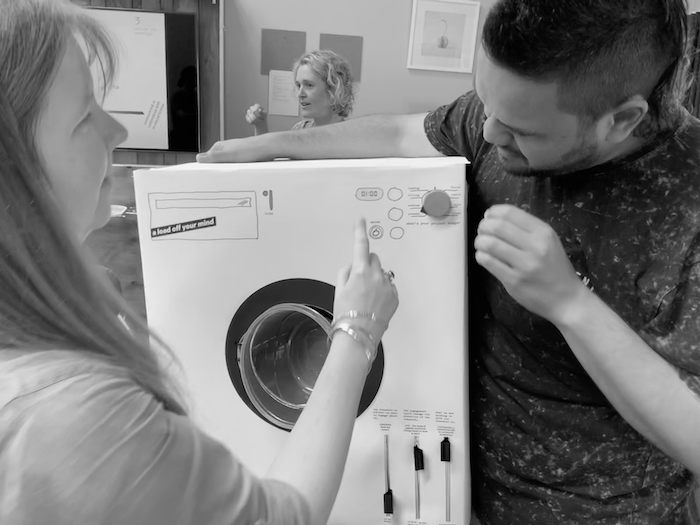
Talking about the sliders at stage 3: choose the settings
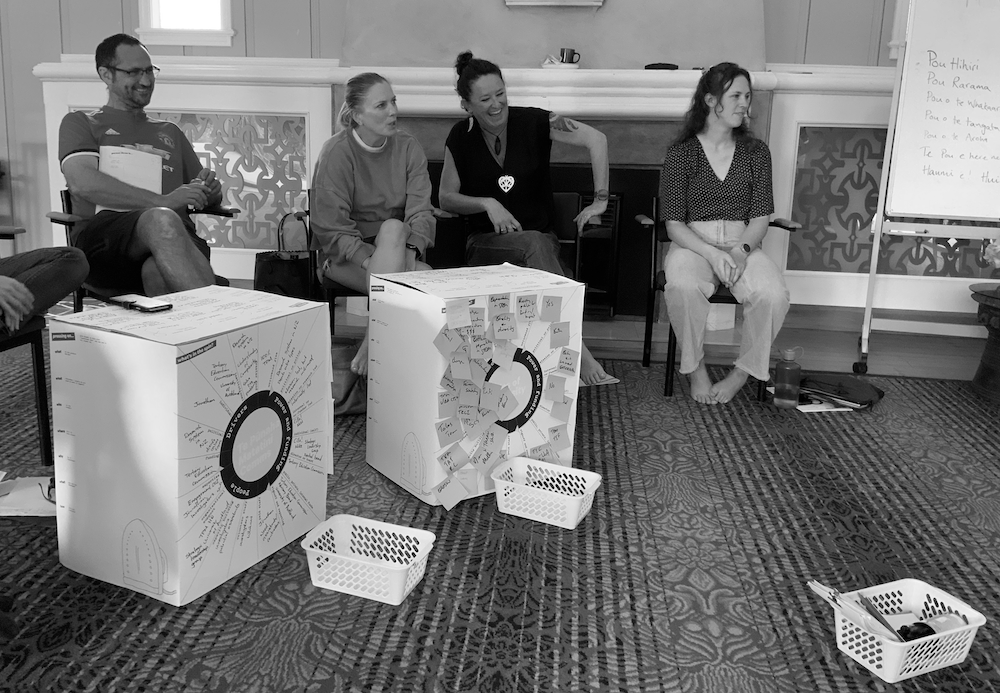
A group of participants discussing projects in a scicomm laundromat in-action
Virtual washing
Subsequently, due to the COVID pandemic, this was further developed as an online edition which took the form of a zine workbook, various props sent by mail, and a series of online meetings. These versions were generally for multiple people working on a single engagement project.
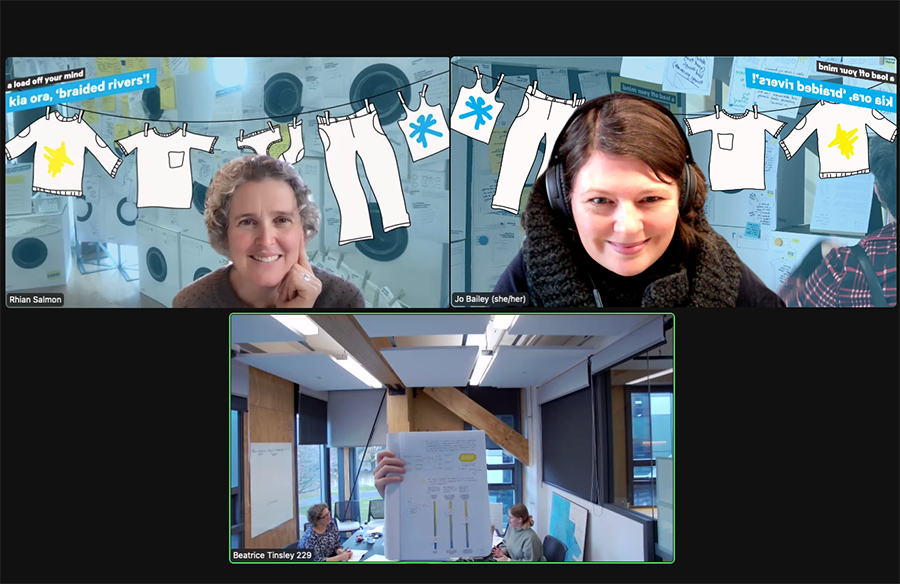
A zoom laundromat in action. Jo and Rhian listening as participants show what they have documented in their zines
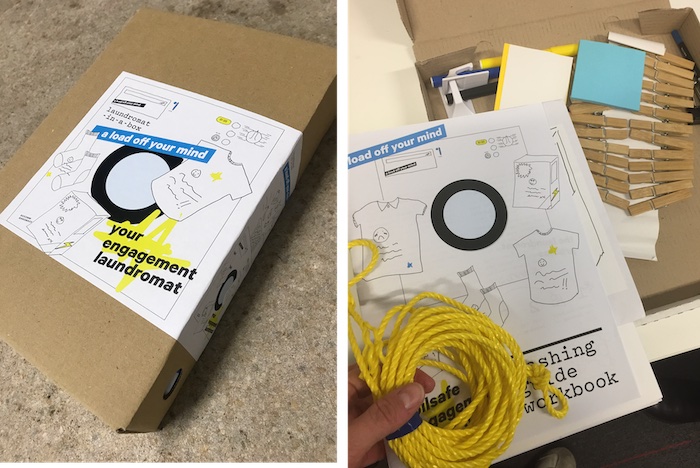
A send-in-the-post laundromat box containing essentials like a washing line and pegs
Rinse and repeat
We have since recommenced in-person residential laundromats where a cohort of researchers work jointly on a single project, or multiple researchers ‘do their own wash in a shared laundromat’, integrating some of the tools we developed for online delivery like the zine workbook.
But why a laundromat?
We found the metaphors just kept washing over us! The never-ending cycle that is laundry was especially resonant when thinking about public engagement practice as something that requires regular attention to ‘refresh’ it.
The idea is that by entering a space that ostensibly has little to do with science communication (or with science for that matter) gives participants a moment to step outside their normal ‘way of being’. The lo-fi nature means that nothing is delicate or precious — being messy and iterative is welcomed; the accretion of scribbles and crossings-out are physical traces of a process.
Though we developed the scicomm laundromat with a specific group of researchers in Aotearoa, anecdotal feedback has suggested that the washing metaphor is reasonably universal (even if the puns are likely quite language-specific!).
We never specifically intended to that this theme should become something that other people might use themselves. In fact, we mused about other people having scicomm gardens, or shopping centres, or farms, each with their own set of props and puns! But, as people have asked if they can run their own laundromat, we decided to offer it up as an open-source resource.
Giving it a whirl?
We would really appreciate knowing if you do use it, and how! Drop us an email to let us know where you've taken it.
A deeper soak
Bailey, J., Salmon, R., & Horst, M. (2022). The ‘Engagement Incubator’: Using design to stimulate reflexivity about public engagement with science. Journal of Science Communication, 21(04), A01. doi.org/10.22323/2.21040201
